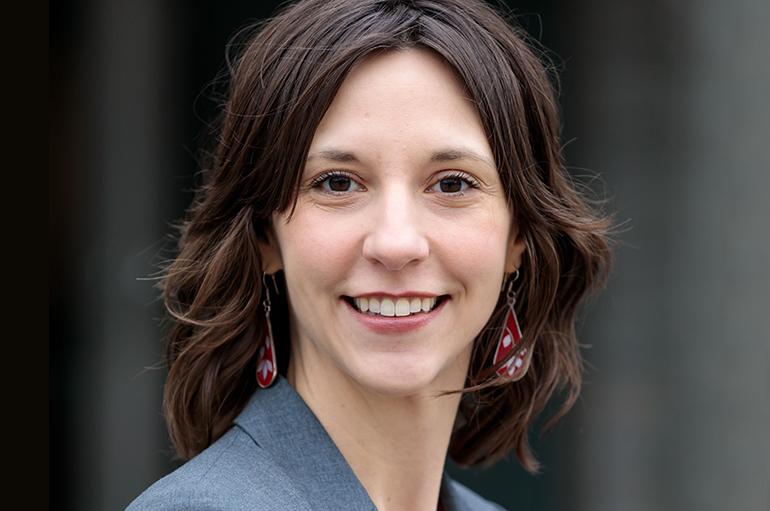
Jennifer Iverson, Assistant Professor of Music and the Humanities (recently promoted to Associate Professor beginning in July 2020), has been appointed a Fellow of the American Council of Learned Societies for the 2020-21 academic year. ACLS fellowships allow scholars from across the United States and throughout the humanities and related social science disciplines to focus full-time on research for a six to twelve-month period, culminating in the production of a major piece of scholarly work.
Iverson will devote her work throughout her ACLS fellowship to a new book titled Porous Instruments: Circulation and Exchange in Electronic Sound. “This project asks how electronic sound has come to pervade culture and experience in the second half of the 20th century,” explains Iverson. “I’m particularly interested in the ways electronic music and instruments enable boundary crossings, such as transmissions between high-art and low-art musical genres, or between military and musical engineering.”
Porous Instruments exemplifies the interdisciplinary nature of scholarship at the University of Chicago. As Iverson says, “my work highlights connections” – between military engineering, corporate research and development, science, avant-garde and pop music, radio, film, and more. It also brings music into conversation with a wide array of disciplines including history, sociology, visual art, literature, science and technology studies. Ultimately, Iverson is “theorizing the impact of electronic music on the cultural level.”
In Porous Instruments, Iverson alternates between focusing on the transfers accomplished through particular technologies—such as the Trautonium, Mixtur-Trautonium, Subharchord, DX-7, Moog, and turntables—and exploring scenes and studios integral to the development of electronic sound, from independent and fringe (the Barrons’ experimental studio, East German basements) to institutional and corporate (Bell Labs, Philips, Siemens, Stanford, Yamaha). With chapters alternating between electronic technologies and scenes, this book explores the multiple consequences of surprising heterogeneity and unlikely transfers.
The culmination of Iverson’s project won’t simply be a monograph. Porous Instruments is aimed at scholars and general audiences alike, and as a project about sound, it cannot simply be read. In addition to her book, Iverson plans a well-designed website to aggregate examples and recordings, live events including pre-film and pre-concert talks and lectures, and nationally distributed podcasts.
Formed more than a century ago to represent the United States in the International Union of Academies, the American Council of Learned Societies is a nonprofit federation of 75 scholarly organizations, including the American Musicological Society, the Society for Music Theory, and the Society for Ethnomusicology. The Council has awarded 81 fellowships for the 2020-21 academic year, selected from nearly 1,200 applicants and distributed amongst academics at the Assistant Professor, Associate Professor, and Professor levels. Awards range from $40,000 to $75,000 based on academic rank, totaling $4.3 million in 2020-21.
